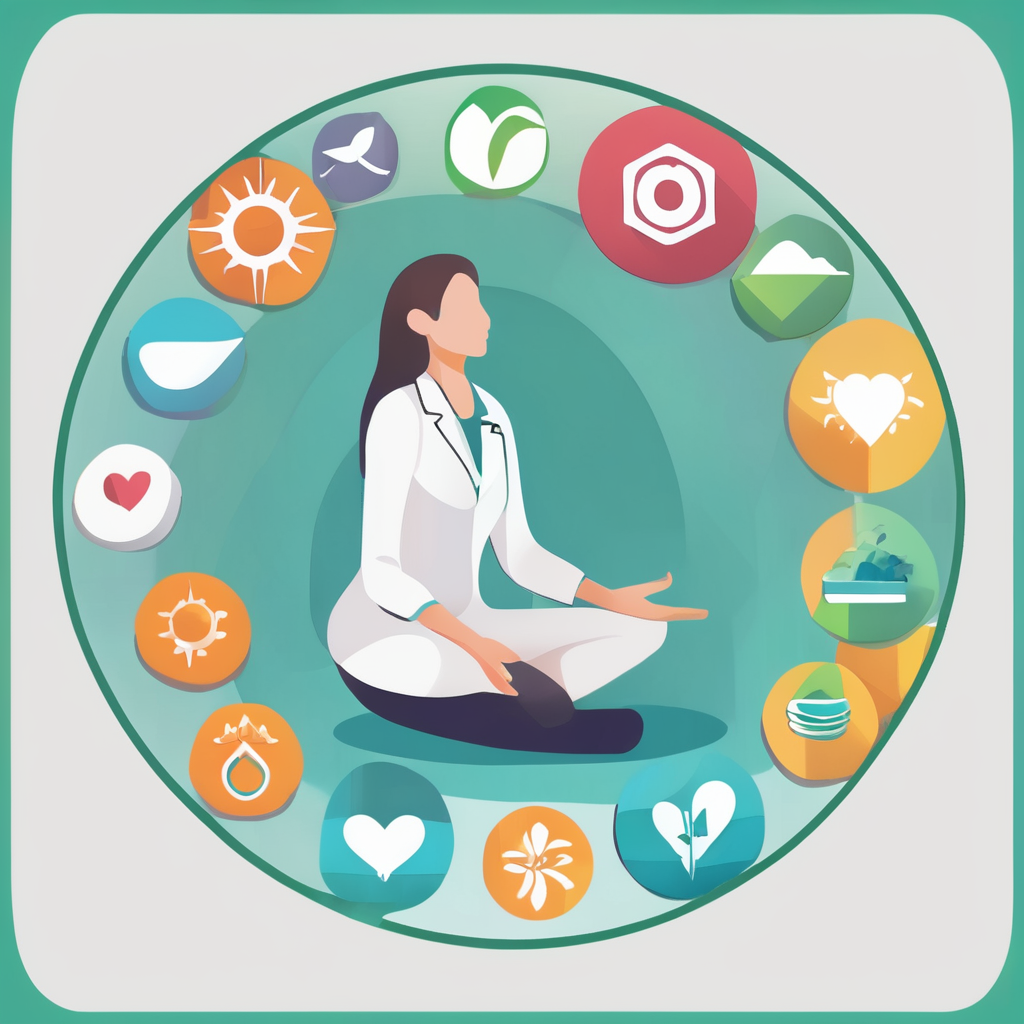Revolutionizing Diabetes Care: The Role of Tech-Driven Solutions in Boosting Treatment Adherence
The Landscape of Diabetes Care: Challenges and Opportunities
Diabetes, a chronic condition affecting over 463 million people globally, presents significant challenges in management and care. Traditional methods of monitoring blood glucose levels, managing insulin regimens, and maintaining lifestyle adjustments can be cumbersome and often lead to gaps in treatment adherence. However, the advent of technological innovations is transforming the landscape of diabetes care, offering more precise, convenient, and personalized management solutions.
The Rise of Digital Health Technologies
Digital health technologies, including mobile apps, telemedicine, and artificial intelligence (AI), are at the forefront of this revolution. These tools empower patients to take a proactive role in their health, making diabetes management easier and more efficient.
Have you seen this : Unlocking Health: The Transformative Effects of Structured Exercise Programs for COPD Patients
Mobile Apps for Diabetes Management
Mobile applications have revolutionized the way individuals manage their diabetes. Here are some key features and benefits of these apps:
- Personalised Insights and Data Sharing: Many diabetes apps provide personalized insights based on the user’s data, offering tips for managing blood sugar levels more effectively. Users can share their data with healthcare providers, facilitating better communication and collaborative care[4].
- Medication Reminders and Tracking: Apps can send reminders for medication doses and track insulin usage, ensuring that patients never miss their scheduled injections[4].
- Data Analytics: These apps often include analytics that help users understand their glucose patterns, enabling them to make informed decisions about their diet, activity, and medication.
For example, Jessica, a diabetes patient, found that her smart insulin pen and associated mobile app made her life much easier: “My smart pen has made my life so much easier. I can see exactly how much insulin I’ve taken and when, which has improved my control and confidence in managing my diabetes.”[4]
Also to discover : Unlocking Healing: The Role of Art Therapy in Overcoming Eating Disorders
Telemedicine and Remote Monitoring
Telemedicine has transformed the delivery of healthcare, particularly for individuals managing chronic conditions like diabetes.
Virtual Consultations and Real-Time Data Sharing
- Virtual Consultations: Patients can now consult with their healthcare providers from the comfort of their homes through video calls or phone appointments. This eliminates the need for travel, which can be especially beneficial for those living in remote areas or facing mobility challenges[4].
- Real-Time Data Sharing: With telemedicine, individuals can share real-time glucose data collected from continuous glucose monitors (CGMs) or mobile apps with their healthcare professionals. This allows for timely interventions and adjustments to insulin regimens[4].
Mark, a 50-year-old living in a rural area, benefited significantly from telemedicine services: “After the introduction of telemedicine services, I began using a combination of virtual consultations and digital health tools to manage my diabetes. This has made accessing diabetes care much easier and more convenient for me.”[4]
The Impact of Artificial Intelligence (AI)
Artificial intelligence is increasingly being harnessed to enhance diabetes management, offering promising solutions to improve glycemic control and individualized treatment.
AI-Driven Insights and Recommendations
- Enhanced Decision-Making: AI integrates with diabetes management tools to provide enhanced decision-making capabilities. With AI-driven insights and recommendations, users can better navigate their daily diabetes management, leading to improved health outcomes and a better quality of life[4].
- Predictive Analytics: AI can analyze historical data to predict future glucose levels, helping patients and healthcare providers anticipate and prevent hyperglycemic or hypoglycemic episodes.
Electronic Medical Records (EMRs) in Diabetes Management
EMRs, such as Intrahealth’s Profile, play a critical role in streamlining diabetes management and ensuring better patient outcomes.
Medication Management and Compliance Tracking
- Medication Management System: Profile provides a medication management system that enables clinicians to track prescriptions, monitor compliance, and set reminders for patients. This reduces the risk of complications due to missed doses and empowers patients to stay engaged in their own care[5].
- Patient Communication Tools: The patient communication portal allows providers to share lab results, offer lifestyle tips, and send reminders for upcoming appointments, fostering a collaborative environment and ensuring patients remain informed and supported[5].
Integrating Sensor-Based Health Data
The integration of sensor-based health data, such as that from CGMs, is crucial for transforming diabetes care. However, there remains a disconnect between the data collected by these tools and their integration into clinical care and reimbursement pathways.
Addressing Treatment Gaps and Inequities
- Creating a Comprehensive Framework: Initiatives like DATAcc by DiMe aim to create a clear path for integrating patient-generated health data (PGHD) into care models. This involves developing policy recommendations to ensure the integration and commercial success of sensor-based digital health technologies (sDHTs) for monitoring and treatment decisions[2].
- Building Industry Relationships: By convening industry leaders across the healthcare spectrum, these initiatives build relationships and gather market insights from pharmaceutical companies, medical device developers, payors, health systems, and regulators. This collaborative approach helps shape the future of diabetes care and ensures that sensor-based health data is used to improve patient outcomes[2].
Practical Insights and Actionable Advice
For patients and healthcare providers looking to leverage these technological advancements, here are some practical insights and actionable advice:
For Patients:
- Use Mobile Apps: Utilize mobile apps that provide personalized insights and reminders to manage your blood sugar levels and medication regimens more effectively.
- Engage in Telemedicine: Take advantage of telemedicine services for remote consultations and real-time data sharing with your healthcare providers.
- Leverage AI-Driven Tools: Explore AI-driven tools that offer predictive analytics and personalized recommendations to enhance your diabetes management.
For Healthcare Providers:
- Implement EMRs: Use EMRs like Intrahealth’s Profile to streamline medication management, track patient compliance, and facilitate better communication with patients.
- Integrate Sensor-Based Data: Work towards integrating sensor-based health data into clinical care and reimbursement pathways to improve patient outcomes and reduce treatment gaps.
- Collaborate with Industry Leaders: Participate in initiatives that bring together industry leaders to develop comprehensive frameworks for incorporating PGHD into care models.
Case Studies and Success Stories
Real-life examples highlight the positive impact of these technological innovations on diabetes management.
Case Study: Emily and Continuous Glucose Monitoring
Emily, a diabetes patient, benefited from using a continuous glucose monitor (CGM). The real-time data from the CGM allowed her to make immediate adjustments to her diet and insulin regimen, significantly improving her blood glucose control. She noted, “The CGM has been a game-changer for me. I can see my glucose levels in real-time and make adjustments as needed, which has greatly improved my overall health and confidence in managing my diabetes.”[4]
Table: Comparison of Digital Health Tools in Diabetes Management
| Tool | Key Features | Benefits |
|---|---|---|
| Mobile Apps | Personalized insights, medication reminders, data sharing | Improved adherence, better communication with healthcare providers, enhanced decision-making |
| Telemedicine | Virtual consultations, real-time data sharing | Increased access to care, reduced need for travel, timely interventions |
| Artificial Intelligence (AI) | Predictive analytics, personalized recommendations | Enhanced decision-making, improved glycemic control, better quality of life |
| Electronic Medical Records (EMRs) | Medication management, compliance tracking, patient communication tools | Streamlined care, improved patient outcomes, reduced administrative burden |
| Continuous Glucose Monitors (CGMs) | Real-time glucose data, alerts for high/low levels | Improved blood glucose control, timely adjustments to treatment plans |
The integration of technological innovations into diabetes care is revolutionizing the way patients manage their condition. From mobile apps and telemedicine to AI and EMRs, these tools are making diabetes management more accessible, efficient, and personalized. As we continue to advance in this field, it is crucial to address the gaps in treatment adherence and ensure that these technologies are integrated into clinical care and reimbursement pathways. By doing so, we can significantly improve health outcomes for the millions of people living with diabetes.
References
[1] Technological advancements in glucose monitoring and artificial … – PubMed
[2] Using Sensor-Based Health Data to Revolutionize Diabetes Care – DATAcc by DiMe
[3] Medication Adherence to Improve Outcomes and Save Lives – Altruix
[4] Innovations in Diabetes Treatment and Monitoring Technologies – Cpd Online
[5] Enhancing Diabetes Care with EMR Technology – Intrahealth
By embracing these tech-driven solutions, we can create a future where diabetes care is more effective, more accessible, and more personalized than ever before.











